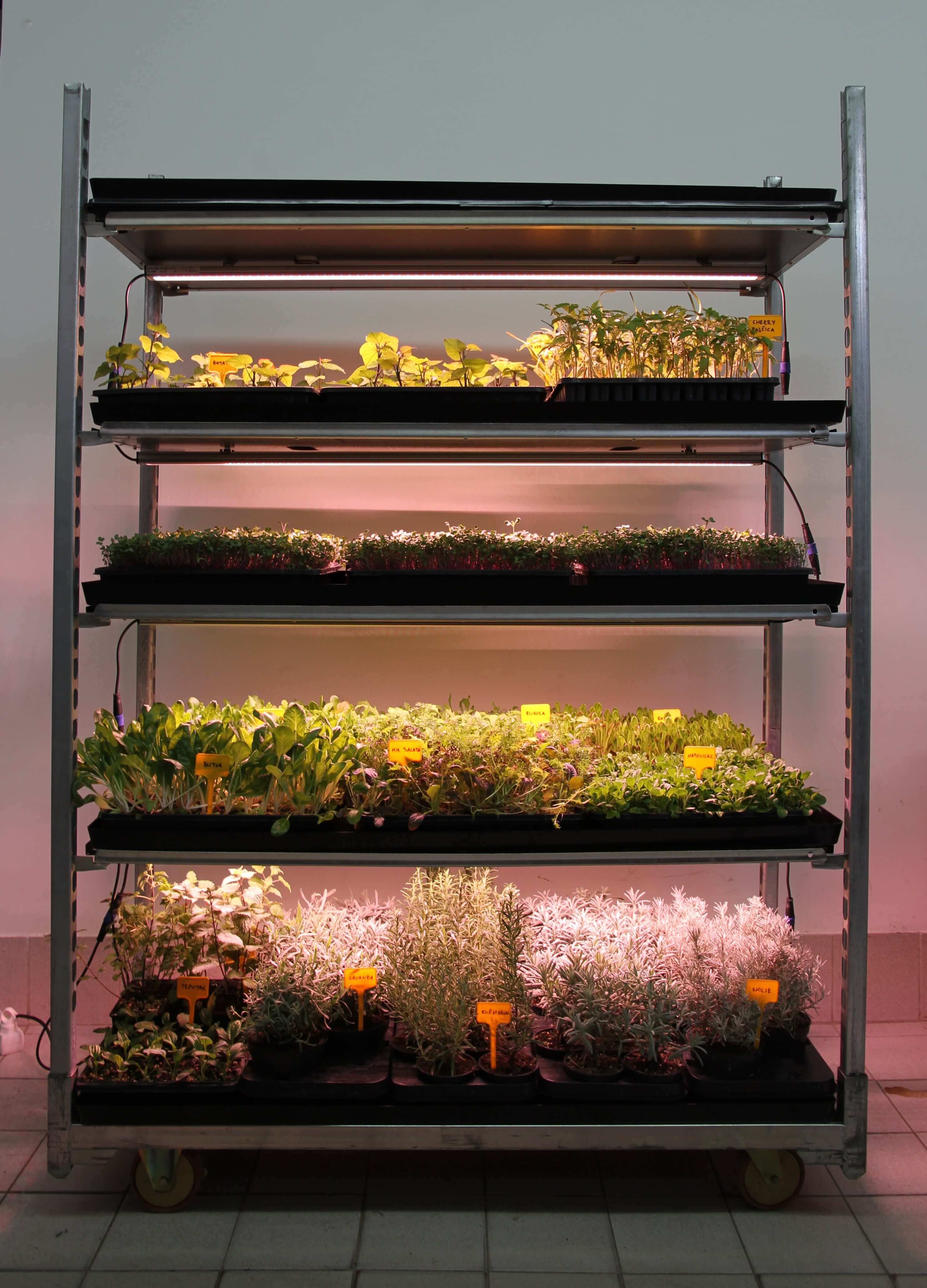Par'l Committee: Concrete Support to Farmers in Earthquake-Hit Areas Needed Now
ZAGREB, 15 January, 2021 - Farmers in earthquake-hit areas need concrete help immediately so that they can stay and live and work there, it was said at a meeting of the parliamentary Agriculture Committee on Friday.
In three months' time the committee will convene to analyse what has been done to assist people affected by the earthquakes in 2020.
Farmers are faced with many problems - damaged houses, farm buildings and equipment, polluted wells and buyers who are taking advantage of the situation and offering low prices for their cattle, the committee heard.
The one thing that is obvious is that no one wants to leave their homes, the committee chair, MP Marijana Petir, said.
She said that farmers should be provided with temporary accommodation as soon as possible but also with shelter for farm animals. "We need to act quickly and concretely because if farms shut down, they will never reopen," underscored Petir.
She added that applications for farm support need to be make simpler for earthquake-hit areas as farmers there cannot meet the current criteria.
Everyone needs help immediately
Božidar Antolec from a local action group called for help so that local farmers can place their products on the market and that they be temporarily exempted from paying contributions or at least that they be deferred.
Croatian Chamber of Agriculture (HPK) president Mladen Jakopović said that two large retail chains had offered to place farmers' products from earthquake areas on their shelves through a simplified procedure and one had promised logistics in that regard.
The HPK advocates that support should be provided so that people remain in the area. Jakopović said that the HPK was delivering the first of several housing containers to the area today.
The committee's deputy chair, MP Ružica Vukovac (DP), said that there were problems on the ground, presenting an example in Donja Bačuga where it took three days for the competent services to save a herd of cattle, which, she said, showed that there was a problem in the chain of command.
Agriculture Minister Marija Vučković and state secretary Tugomir Majdak rejected this criticism, saying that they had been in the field constantly.
"That is not a realistic description. The cattle wasn't abandoned and there is no need to exaggerate the situation," Minister Vučković said.
She supported the suggestion that the majority of local products should be used in local kindergartens, schools, hospitals. "We are working on that, however, it is necessary to increase production in that area," she underscored.
Projects valued at more than HRK 1 billion agreed to
Speaking about rural development measures, Vučković said that by 13 January projects valued at HRK 1.08 billion had been agreed to for Sisak-Moslavina County and that HRK 851 million had been paid out. HRK 137 million refers to social and utility infrastructure and HRK 67 million of that has been paid out.
Rural development measures for family-run farms valued at HRK 164 million have been agreed to for 81 projects and 29 projects valued at HRK 1.7 million have been agreed to for emergency aid due to the consequences of the COVID-19 pandemic.
A total of 451 projects for the development of small farms, launching of non-farming activities and support to young farmers valued at HRK 80.3 million have also been agreed to, said Vučković and added that direct payments were accelerated and that to date HRK 93 million, which is usually paid as of 15 February, had already been paid out.
Globalisation Threatens Croatia's Produce and Cuisine Via New Seed Laws
January 15, 2021 – The EU is being backed into a corner by the giants of globalised agriculture. Pre-empting a change in EU-farming directives, a new bill before the Croatian parliament seeks to regulate seed use for the country's farmers, putting at risk Croatia's distinct, regional produce and the country's famous cuisine. TCN interviews one of those leading the fight for Croatia's produce and cuisine.
Question: When is a tomato not a tomato? Answer: When it is a Croatian tomato.
Confused? Well, if you're from Croatia and never much left the country or region, you might be. But, if you're from western Europe or America and you've enjoyed a visit to Croatia, you'll know exactly what this means. As will any Croats who have emigrated to supposedly more 'developed' parts of the world. Food just doesn't taste the same in those places.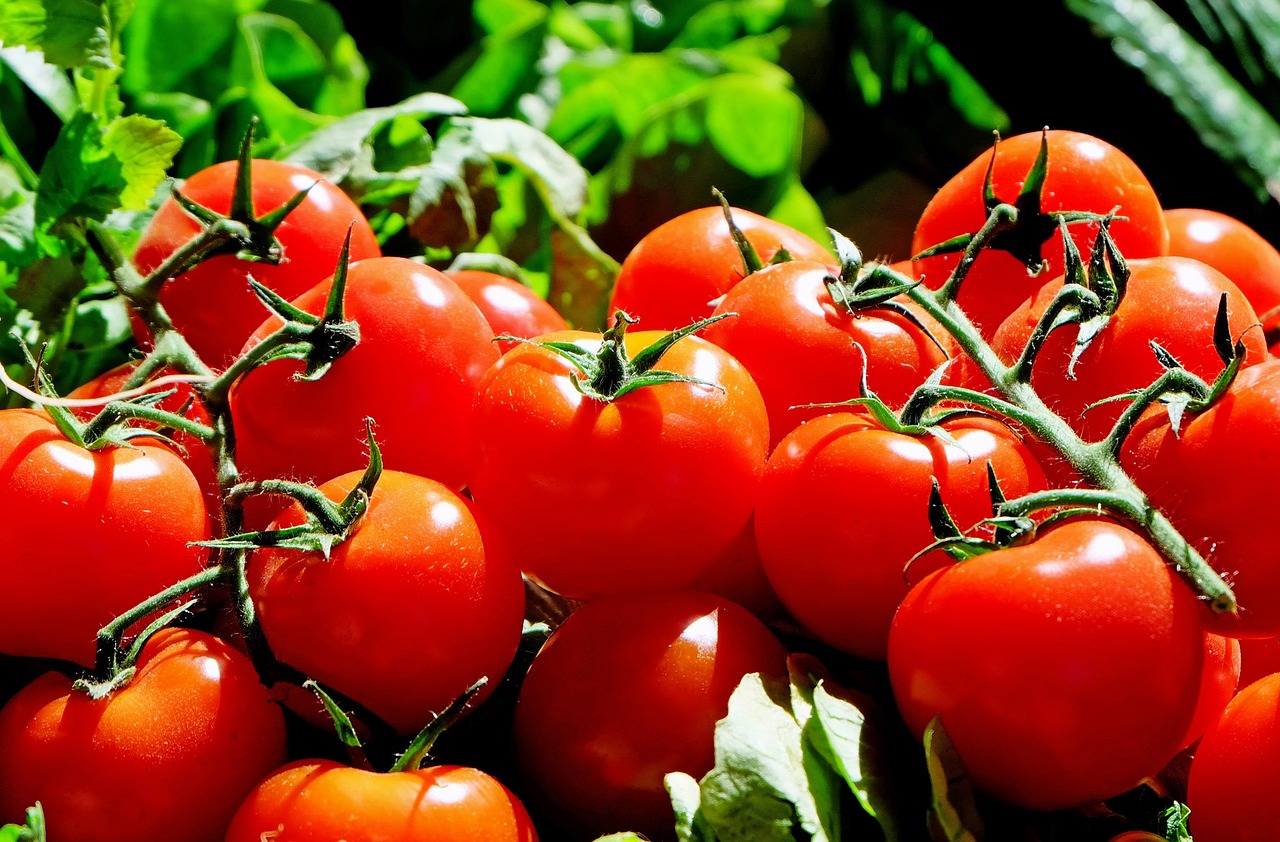 The efforts of small-scale producers, family afrmers and those preserving distinct, traditional crops help give Croatia's produce and cuisine its unique reputation and flavour
The efforts of small-scale producers, family afrmers and those preserving distinct, traditional crops help give Croatia's produce and cuisine its unique reputation and flavour
As TCN touched on in our recent feature about food prices in Croatia (and its impact on health), in the supermarkets of western Europe and in America, everything is available, all of the time. People live in a globalised marketplace where seasonal availability is meaningless when your country and its giant supermarket brands have the power to export from anywhere. But, though everything is always available in these supermarkets, not everything on display is what it seems to be.
In Dalmatia, they like to pride themselves on a generally very simple approach to cooking. Good olive oil, salt, maybe a dash of fresh lemon, garlic and parsley is all you need to make a meal sing. And the surprised, delighted faces of their customers tell them they are right. But, that's far from the full story. It is not the simple approach to seasoning, spicing and condiments alone that brings Dalmatian cuisine to life, it is the base ingredients themselves.
The blitva (chard) stewed in potato, that so easy yet unreproducible shredded cabbage salad, and the similarly simple tomato salad are spectacular to visitors because their main ingredients sing. They sing in way that vegetables bought in supermarkets in western Europe and America do not. They do so because, in Croatia, you can easily choose to eat locally grown, seasonal vegetables and fruits. And these taste a whole lot better than the industrially farmed products that line the shelves in other regions. That's why, in Croatia, a tomato still tastes like a tomato. Whereas a tomato from a supermarket elsewhere tastes like... nothing.
Countless unclassified regional varieties of vegetables and fruits, often grown by small-scale producers or on family farms (OPGs) help give Croatia's produce and cuisine this incredible reputation among visitors. But, as the multi-billion dollar, globalised industry of farming-without-season extends its grip around the world, it is the rights of these distinct farmers which is most at threat.
The European Union is attempting to change its laws and directives for the regulation of seed use within all member states. Pressured by the enormous powers of the global agricultural industry, and partially in an attempt to protect its farmers, it wishes to adopt new laws or regulations to replace extremely outdated earlier versions. Pre-empting this change, a law has been put before the Croatian parliament which seeks to regulate seed use in Croatia. It's a rather complicated piece of legislation and is currently only at the stage of proposal.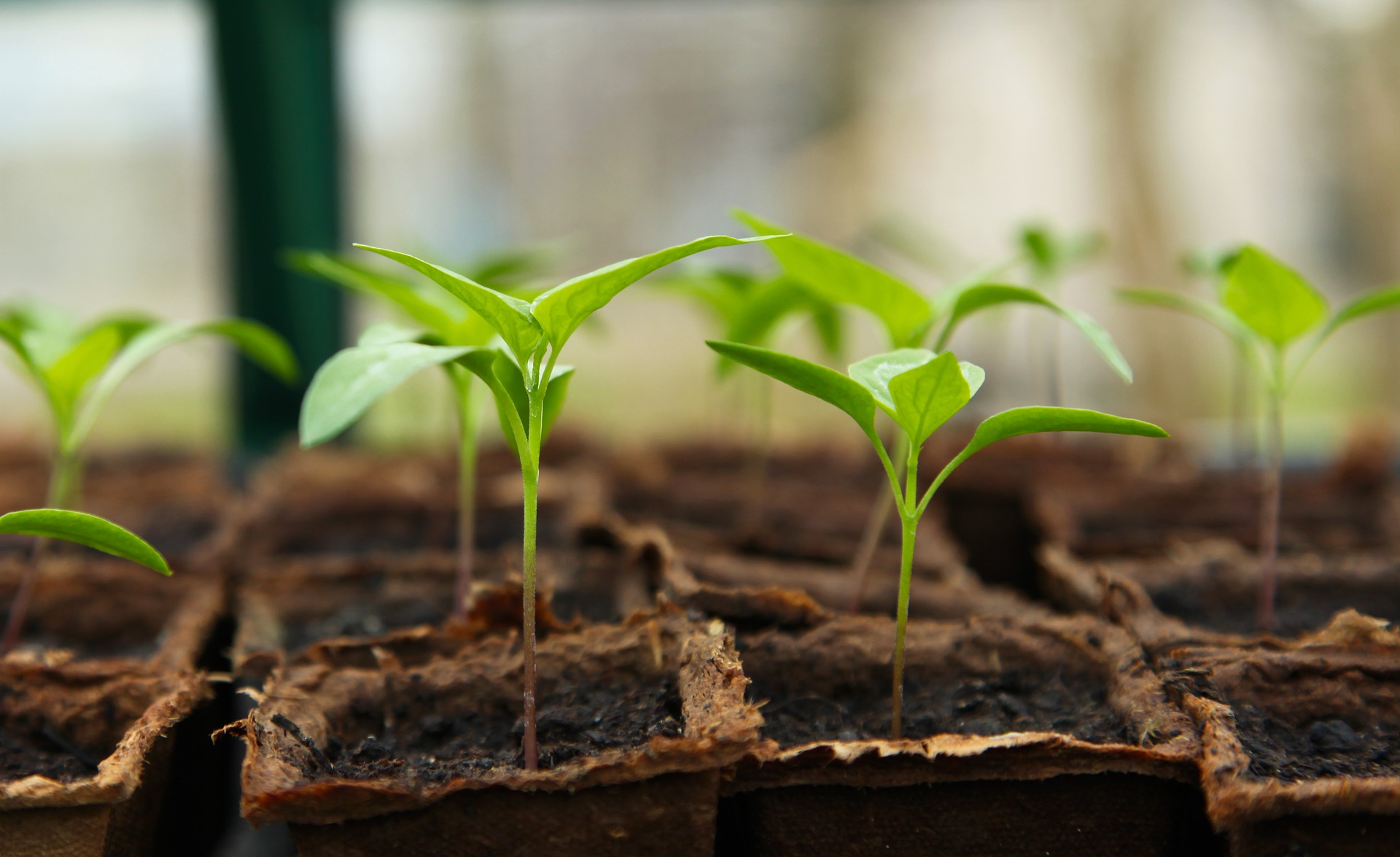 Changes to the laws of seed registration at a national and EU level, partly in response to the demands of the globalised agricultural industry, threaten Croatia's produce and cuisine
Changes to the laws of seed registration at a national and EU level, partly in response to the demands of the globalised agricultural industry, threaten Croatia's produce and cuisine
Monitoring the proposed changes are an army of environmental activists, small-scale producers, family farmers, gardeners and concerned citizens. Spearheaded by three organisations – The Croatian Organic Farmers Association, Life - an organisation of small scale farmers, and Bio-Garden, an organisation made up of gardeners and seed savers - a petition has this week been put before the Croatian parliament objecting to several elements of the proposed new legislation. Earning the support of some 77 Croatian organisations, including farming groups, cattle breeders, plant growers, a network of environmental organisations, permaculture initiatives, gardeners' organisations and even the Chamber of Agriculture, which includes all the farmers inside Croatia, the petitioning of parliament has galvanised many different people in its objection. They say that the proposed new legislation will remove the rights and freedoms of small scale producers and family farms to use their own seeds. This will radically affect Croatia's produce and cuisine.
It is doubtless that there is a worldwide trend, pushing everyone who grows towards buying seeds from globalised agricultural giants. And so, while the response from a broad group of those immediately concerned is impressive enough, awareness of the issue needs to extend much further. It should include every Dalmatian tavern owner and chef who delights a foreign visitor. It should include every single person in Croatia who buys food from a public marketplace. It should include everyone who takes pride in home cooking. It should include the entire tourism industry of Croatia and every visitor to Croatia who has ever enjoyed the food here. Because it is the very distinctive, authentic and traditional nature of Croatia's produce and cuisine that is at stake. Croatia is at real risk of losing the flavour of its food.
“Let me start 10, 000 years ago, when agriculture first started. That's when people learned how to save seeds,” explains Sunčana Pešak, a graduate of Zagreb University's Agriculture Faculty and a member of the three combined groups objecting to the proposed new law. “What these people learned was to save the seeds only from the best part of the harvest. That's what they would use to grow the next season. That's how farming always was. And, it's the way that we got all of the genetic diversity of all the grown foods we eat.”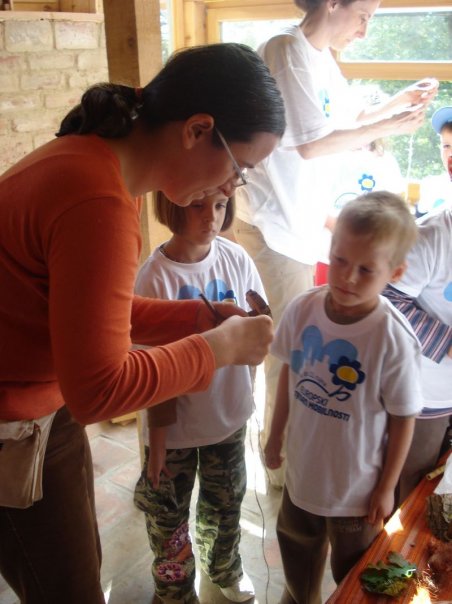 Sunčana Pešak, a graduate of Zagreb University's Agriculture Faculty and a member of the three combined groups defending Croatia's produce and cuisine by objecting to the proposed new seed law
Sunčana Pešak, a graduate of Zagreb University's Agriculture Faculty and a member of the three combined groups defending Croatia's produce and cuisine by objecting to the proposed new seed law
That way of saving seeds still exists. It's what all gardeners and small-scale farmers use. But, now there is something new – industrial farming. They have a different way of saving seeds. This involves a scientific approach to breeding and an industrial approach to growing and harvesting. This is problematic because only around 10 companies in the whole world own the rights to the scientifically manufactured seeds used on this scale of farming. They own the patent rights to the seeds they have created. And, they always want their profits from their seeds being used. These companies are the same ones who produce the chemicals used in industrial farming. They control most of the seed market all over the world.”
The current problems facing small-scale producers and family farmers, brought to a head by the proposed new law in Croatia, essentially come from a clash between industrial-level seed breeders, who control the global market and who demand royalties on their patented seeds, and farmers who just want to grow.
“The term 'Seed variety' itself is a commercial term,” explains Sunčana. “This is something that can be described and catalogued as distinct. All of the plants and their fruits needs to look the same to be identified as this variety. In this way, it can be marketed. But, for people who grow from their own indigenous seeds, in their own traditional ways, their crop is much more diverse.”
“For example, in Croatia, before seed breeding started, people just grew from their own seeds. They would exchange seeds among themselves and eventually each village had its own unique varieties of crops. You could go 20 minutes down the road and the carrots that were grown in the next village were completely different to the ones you grow in your own. Some of the carrots were big, some small, some looked weird, some took on a white colour because they mixed with the wild-growing varieties. Also, as a small producer, you might employ the use of a combination of seed. You plant it and when it grows you get completely different kinds of plants. People might have a winter mix and a summer mix. It ensures diversity in growing and in the diet. Even with grains, by planting a mixture you might ensure a harvest is more resistant to a pest or a weather intervention. One element of the proposed new law would prevent those kinds of mixtures being planted and we would lose completely the initiative and experience of farmers who do so.”
“They proposed new seed law seeks to regulate everything. The demands asked of small scale farmers under it are the same one asked of industrial-scale farmers – they are all placed on the same footing. If you want to use a seed of your own, you have to register those traditional varieties in a system that is currently undefined. Why? Just let people grow. It is their right.”
The groups objecting to the proposed new law in Croatia have found some allies in their fight. Small scale producers and the owners of family farms around the world have been battling against the monopolisation of the farming industry by a handful of globalised giants for many years. They are organised and have teams of lawyers working on their behalf. They have lent support to Croatia's collective of objectors in their fight, helping to point out that the new proposed law goes against the rights not only of EU citizens but against global human rights. "States shall recognize the rights of peasants to rely either on their own seeds or on other locally available seeds of their choice, and to decide on the crops and species that they wish to grow." says the United Nations Declaration on the Rights of Peasants and Other People Working in Rural Areas.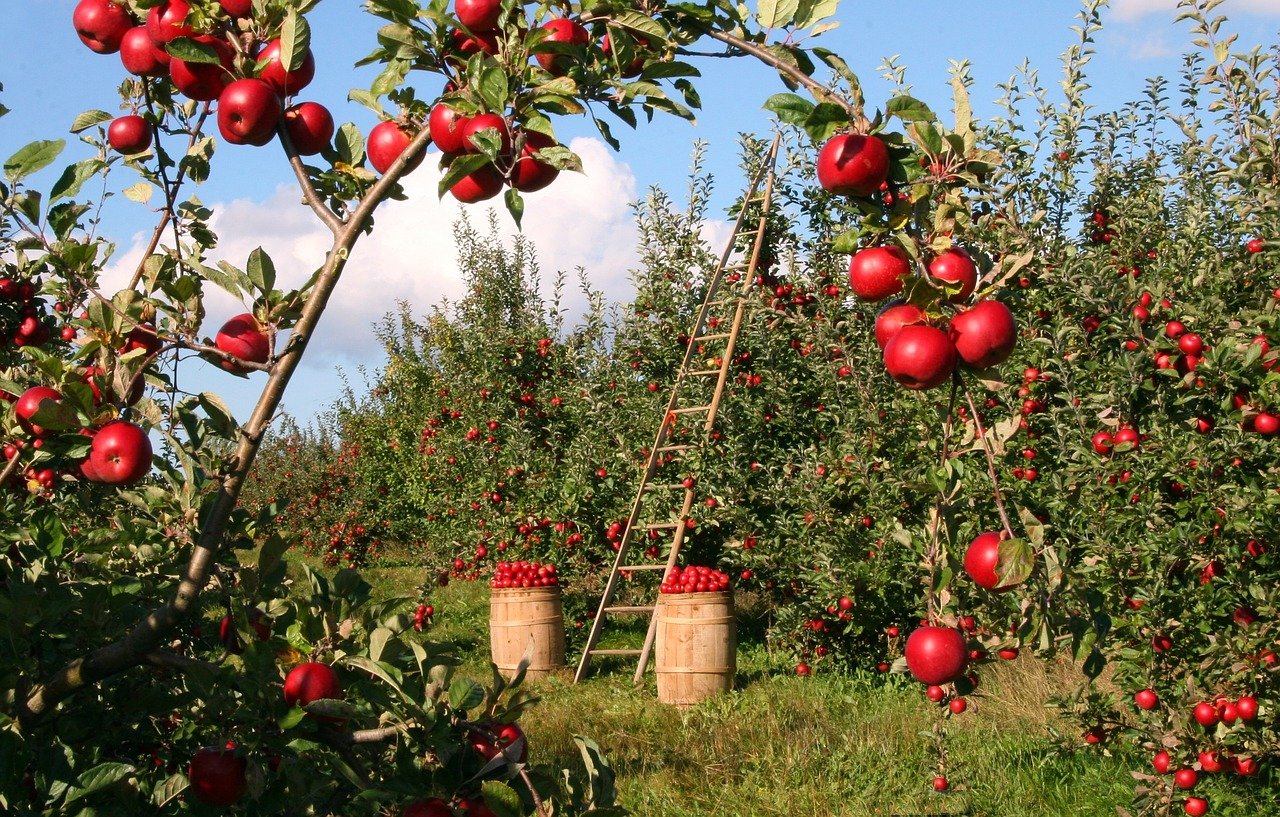 Traditional farming and time-honoured seed varieties help make Croatia's produce and cuisine unique in Europe. Croatia currently stands strong against the pressure from globalised agriculture to accept GMO produce. Can it stand as strong against its demands for new registrations of seeds?
Traditional farming and time-honoured seed varieties help make Croatia's produce and cuisine unique in Europe. Croatia currently stands strong against the pressure from globalised agriculture to accept GMO produce. Can it stand as strong against its demands for new registrations of seeds?
“The risk is huge,” says Sunčana, when asked what might happen to Croatia's produce and cuisine if the proposed new law passes without objection. “In just the last 100 years we lost 75% of our genetic biodiversity. That happened quite simply because people started buying seeds instead of saving them and then growing their own. All of the seeds that are now grown are quite alike. They take varieties that are proven to be the best, to grow to a maximum yield, to be resistant to pests and weather and which can grow successfully in all the different climates of the world. These are varieties that are standardised, well suited to industrial farming – they all ripen at exactly the same time, assisting mechanised harvesting. But, that logic does not always suit small scale farms, where you might need to grow from seeds whose plants reach maturity over an extended period. This gives you many weeks of opportunity to harvest and to sell on different market days.”
But, it isn't just a loss to the convenience of family farmers that would be enforced by the new law. Nor it is solely a matter of losing the tastes of traditional varieties of vegetables and fruits within Croatia's produce and cuisine. The loss to our collective health from this massive reduction in the variety of genetic biodiversity in our diet is currently unknown. Future effects could be catastrophic. Not only that, we could rapidly be losing crop varieties that might better adapt to the new conditions that will be imminently brought about by climate change.
“People with small farms already have enough trouble dealing with bureaucracy and administration. There's no way that all of Croatia's growers will go through the timely ordeal of registering every seed we have,” explains Sunčana, detailing another stipulation that lies within the proposed new change of law. If growers don't wish to register their own distinct varieties - which may have been preserved within their families or communities for generations, they always have the option of going to the National seed bank and taking from there, seeds that have already been registered. Unfortunately, only 27 such seeds exist within Croatia. And the seed bank can only supply such a small amount that it may take a small scale farm several years to build up the supply they need for their business.
The proposed new change of law in Croatia is extremely complicated, as will be the procedures and demands on growers if it passes. The change in seed regulation at an EU level could be similarly restrictive to non-industrial farmers and growers. But, though it is the Croatian government – and then the lawmakers of the EU – who will be addressed by the objections of farmers, growers, gardeners and biodiversity organisations, it is ultimately the profits of a small cabal of globalised and increasingly industrial agricultural/chemical giants which lie at the heart of the demand for change. They are a force of near incomparable strength.
On the surface, the issue of seed regulation might appear to really matter only to those who have a small to medium-sized business growing tomatoes or similar. But, the reality is that this issue concerns us all - everyone who puts a tomato on their fork, on their children's plate or on the table of an overseas visitor who will never forget the distinct flavour of Croatian food. It is the flavour of the future, and the reputation of Croatia's produce and cuisine, for which the fight is currently being made.
Direct Help: Order From a Petrinja OPG, Small Producer, Family Farm
January 9, 2021 – The area affected by the devastating earthquake of 29 December 2020 is mostly rural. People there live off the land. They employ others at family farms and as small scale producers. Ordering from a Petrinja OPG or one from the surroundings directly helps families and the economy of the earthquake-affected area, so here's a list detailing them
Alongside the outpourings of sympathy and promise of prayers, since the large earthquakes of December 2020 struck Sisak-Moslavina County, Total Croatia News has been inundated with requests from regular readers and other asking how they can directly and effectively help. TCN has tried to answer all enquiries the best we can and has striven towards directing donors to the best-placed outlets.
Certainly, the rebuild of the communities and economies in places like Petrinja, Glina, Sisak and hundreds of surrounding villages, hamlets and settlements will take months, even years. As TCN discovered after we visited the affected region one day after the earthquake, this area is predominantly rural. People here live off the land, from agricultural endeavours. Small producers and family farms make up much of the economy. In a year where such producers have been hard hit by travel restrictions and other aspects of the pandemic, the livelihoods of many have been shattered by the subsequent earthquake.
In a pro-active, helpful and exhaustive piece of data collection, writer Antonia Dobrota and the team at Croatian-language tourism portal cimerfraj have over recent days come up with an inspired suggestion of how [people can directly help the economies and people of the affected region. They have published a list of as many small producers, family farms and Petrinja OPG producers, plus those in surrounding areas.
By ordering food, produce and goods like pottery from this list, people can spend their money directly within the economies of the affected area – no suspicion, no doubt, no middlemen, no staffing costs deducted. It is an inspired decision to construct (and continually update) such a list. Bravo, Antonia and cimerfraj! Several Croatian-language media outlets have since republished the list. Total Croatia News is pleased to do so in English. We warmly encourage its use, not only now, but in the months that follow.
Being small producers and family farms, most of the producers below are not only vital to others in the local communities (by offering employment opportunities), their goods are almost exclusively organic and produced in a traditional, eco-friendly manner. Any orders should be submitted with the utmost confidence.
(OPG is a designation in Croatia that is given specifically to family farms and small, community producers)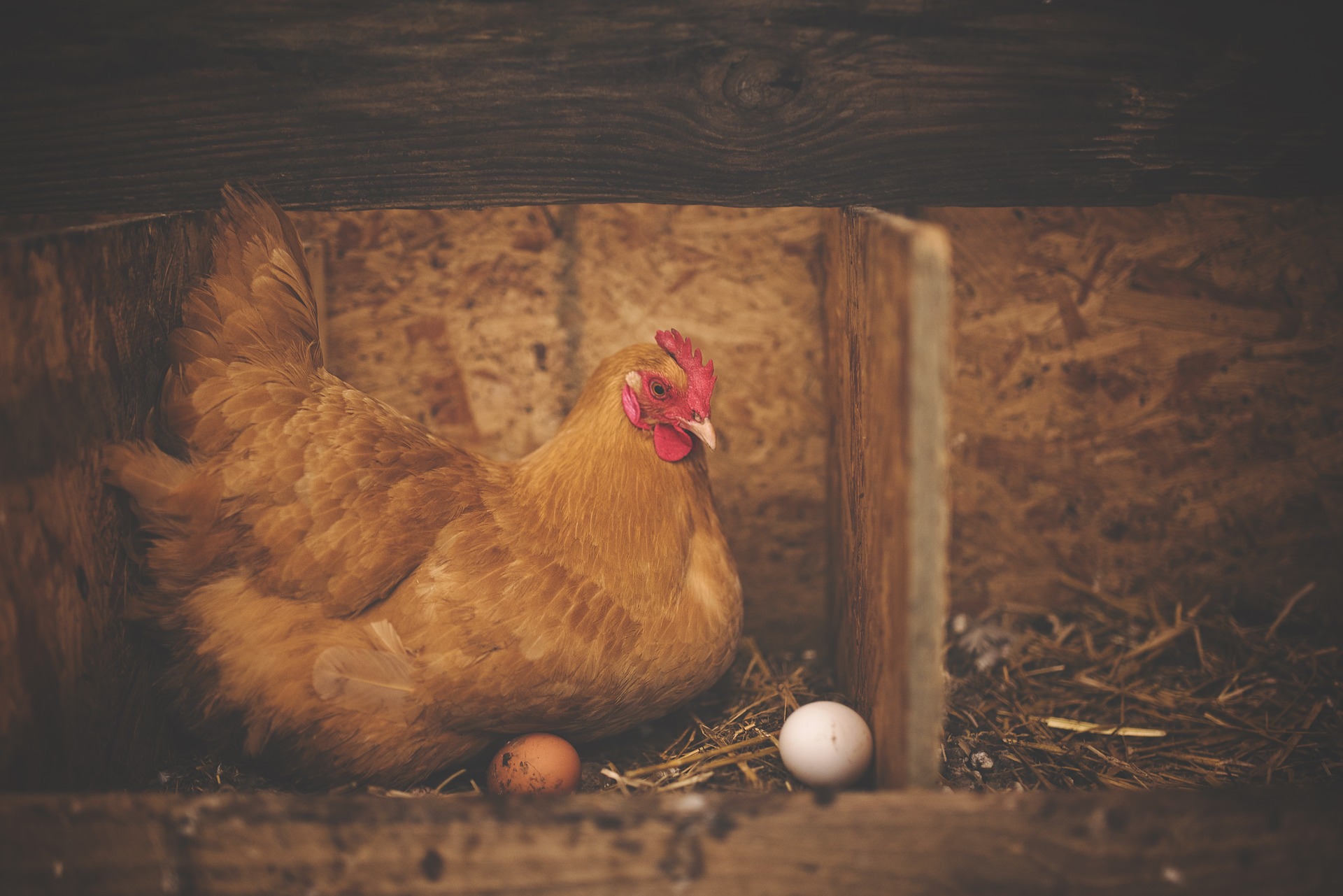
OPG Mladen Tonković
Gornji Vidusevac 2a, Glina
095 8069 822
This email address is being protected from spambots. You need JavaScript enabled to view it.
Products: hazelnuts
OPG Predrag Đurđević
Stjepana Radića 168, Petrinja OPG
091 5853 717
This email address is being protected from spambots. You need JavaScript enabled to view it.
Products: honey, bee products
OPG Vicencinović Hergouth
Stari put 28, Gornja Gračenica
098 9817 696 This email address is being protected from spambots. You need JavaScript enabled to view it.
Products: liqueurs, fruit brandies
OPG Naglić
Kompator 34, Velika Ludina
091 5437 949
This email address is being protected from spambots. You need JavaScript enabled to view it.
Products: organic fruit
OPG Pčelarstvo Crneković
Kornatska 20, Sisak
091 8913 248
This email address is being protected from spambots. You need JavaScript enabled to view it.
Products: honey, bee products
OPG Tomislav Marcinek
Mate Vezmara 25, Voloder
098 9043 165
This email address is being protected from spambots. You need JavaScript enabled to view it.
Products: sheep, chicken and rabbit breeding
Family farm Zeljko Perkovic
Timarci 117, Sunja
091 5887 753
This email address is being protected from spambots. You need JavaScript enabled to view it.
Products: sheep
OPG Oljačić
Dragutina Benka 12, Petrinja OPG
098 1861 397
This email address is being protected from spambots. You need JavaScript enabled to view it.
Products: seasonal fruits and vegetables
OPG Horžić
Vladimira Nazora 26, Sunja
099 4600 210
This email address is being protected from spambots. You need JavaScript enabled to view it.
Products: meat and eggs
OPG Abramović
Franje Zuzeka 17, Glina
098 638 455
This email address is being protected from spambots. You need JavaScript enabled to view it.
Products: mulch, honey and beekeeping products
OPG Leci
Tadije Smičiklasa 34, Petrinja OPG
091 1502 732
This email address is being protected from spambots. You need JavaScript enabled to view it.
Products: chokeberry / ariona berry and fruit jams, chokeberry / ariona berry juice
OPG Mikliš
Desno Trabarjevo 39, Martinska Ves
098 615 011
This email address is being protected from spambots. You need JavaScript enabled to view it.
Products: chickens, ducks, turkeys, chickens, eggs
OPG Ivanković
Martinska Ves 124, Martinska Ves
095 3992 217
This email address is being protected from spambots. You need JavaScript enabled to view it.
Products: hazelnut, beans, orange sweet potato
OPG Ćordaš
Donji Klasnic 111, Glina
091 8843 182
This email address is being protected from spambots. You need JavaScript enabled to view it.
Products: teas, jams, chokeberry / ariona berry products
OPG Marčinko
Dražena Petrovića 18/2, Petrinja OPG
099 7235 037
This email address is being protected from spambots. You need JavaScript enabled to view it.
Products: chokeberry / ariona berry, various types of honey and juices, eco buckwheat flour
Family farm Jure Kolarić
Bobovac 321, Sunja
095 8158 505
Mini cheese factory
Products: Mini cheese factory
OPG Džakula
Sjeverovac 23, Sunja
091 2048 169
This email address is being protected from spambots. You need JavaScript enabled to view it.
Products: veal, pork, fresh meat and cured meat products Pottery is a traditional craft in the area of Petrinja © TZ Petrinja
Pottery is a traditional craft in the area of Petrinja © TZ Petrinja
Pottery Matej Stanešić
Ljudevita Gaja 30, Petrinja OPG
044 816 308
This email address is being protected from spambots. You need JavaScript enabled to view it.
Pottery Val
Slavko Kolar 2, Petrinja OPG
0912340 060
This email address is being protected from spambots. You need JavaScript enabled to view it.
Cacti Beslic
Zagrebacka 185, Duzica
044 752 273
Products: cacti, succulents, aloe, carnivorous plants
Vrtlarija Gadžić
Stjepana Radića 324, Petrinja OPG
099 4040 992
gardener-gadzic
Products: flower and vegetable seedlings, perennials, roses, ornamental and spice plants
Eko-Pčela & OPG Rožić
Slatina 86, Petrinja OPG
098 1727 187
Products: organic honey, grain, rye, buckwheat, oats, fruit seedlings
Beekeeping Priljeva
Mije Srnaka 40, Petrinja OPG
098 9748 434
honey and beekeeping products
OPG Jela Grubišić
9 Gromova Street, Petrinja OPG
098 9454 211
Products: chickens, eggs
OPG Josipa Gadžić
Franza Wagnera 92, Petrinja OPG
098 9454 211
Products: flower and vegetable seedlings
OPG Polimac
Gornja Mlinoga 44
044 823 117/098 1373 107
Products: lambs and sheep
OPG Bunjan Dalibor
Sisačka 50 a, Petrinja OPG
099 2540 815
This email address is being protected from spambots. You need JavaScript enabled to view it.
Products: seasonal fruits and vegetables
OPG Champignon
Đurđica Bočina, Žabno 16, Sisak
099 8196 665
This email address is being protected from spambots. You need JavaScript enabled to view it.
Products: different types of mushrooms
OPG Trsoglavec Štefica
Sibic
098 286 558
Products: cheese, cream, butter and other dairy products
OPG Radošević Marijana
Stromarova 9, Petrinja OPG
099 2557 140
Products: honey and bee products
OPG Dario Paropatić
091 5723 320
Livestock breeding, buying and selling
OPG Paropatić Dejan
099 6597 155
Buying and selling live cattle
OPG Dvorneković
Milana Makanca 25, Petrinja OPG
091 1814 368
Products: blackberry wine, red currant wine, honey, propolis and fruit liqueurs
OPG Šipuš
Preloscica 92, Sisak
097 6674 912
Products: dairy products, cheeses of different flavors
OPG Vuletić Željka
Gornja Mlinoga 39, Petrinja OPG
098 1847 750
This email address is being protected from spambots. You need JavaScript enabled to view it.
Products: jams, marmalades and juices from pumpkin, chokeberry / ariona berry and other fruits
OPG Priljeva Stojan
Donje Seliste, Glina
044 880 353/099 7403 650
Products: cheese and dairy products
OPG Lovro Lenac
A. Tomulića 10, Hrvatska Kostajnica
099 5127 643
This email address is being protected from spambots. You need JavaScript enabled to view it.
Products: pumpkin and chestnut
OPG Tamara Sekereš
Osekovo
091 7914 230
This email address is being protected from spambots. You need JavaScript enabled to view it.
Production: Beekeeping. 8 different types of honey, honey mixtures, propolis, delivery for Zagreb
OPG Ivica Vancas
Nebojan 134, Petrinja OPG
044 751 034/099 8048 076
Production: cereals (except rice), legumes and rapeseed oil
OPG Finka and Zdravko Oršulić
Matije Antolca 141, Petrinja OPG
095 9033 084/095 5863 284
Products: vegetable and flower seedlings, flowers and herbs
Family farm Snježana Oršulić
135 Gromova Street, Petrinja OPG
095 9074 512
Production: flower and vegetable seedlings
OPG Kata Čiča
Donji Viduševac, Glina
098 9945 323
Products: eco hazelnuts and free-range eggs
Family farm Slavica Jurić
Donja Budicina 22, Petrinja OPG
091 7220 520
Products: free-range eggs
OPG Mladen Bjelac
Ive Maline 84, Petrinja OPG
098 601 191
This email address is being protected from spambots. You need JavaScript enabled to view it.
Products: hazelnuts
OPG Stevo Zec
Hrvatska Kostajnica
091 7267 749
Products: honey
OPG Novakovic Milan
Gornji Bjelovac 15, Donji Kukuruzari
044 856 073
This email address is being protected from spambots. You need JavaScript enabled to view it.
Products: home-made sausages and bacon, pork fat
OPG Nikola Petković
Kralja Tomislava 73, Glina
091 7691 460
This email address is being protected from spambots. You need JavaScript enabled to view it.
Products: blackberry wine, blackberry liqueurs, raspberries, cherries, walnuts, rakija, jams, rural tourism
OPG Petrinjčica Davor Lugomer
Luščani 115
091 4000 407
Borovnice Petrinjčica
Products: blueberry cultivation from 15.6 to 10.8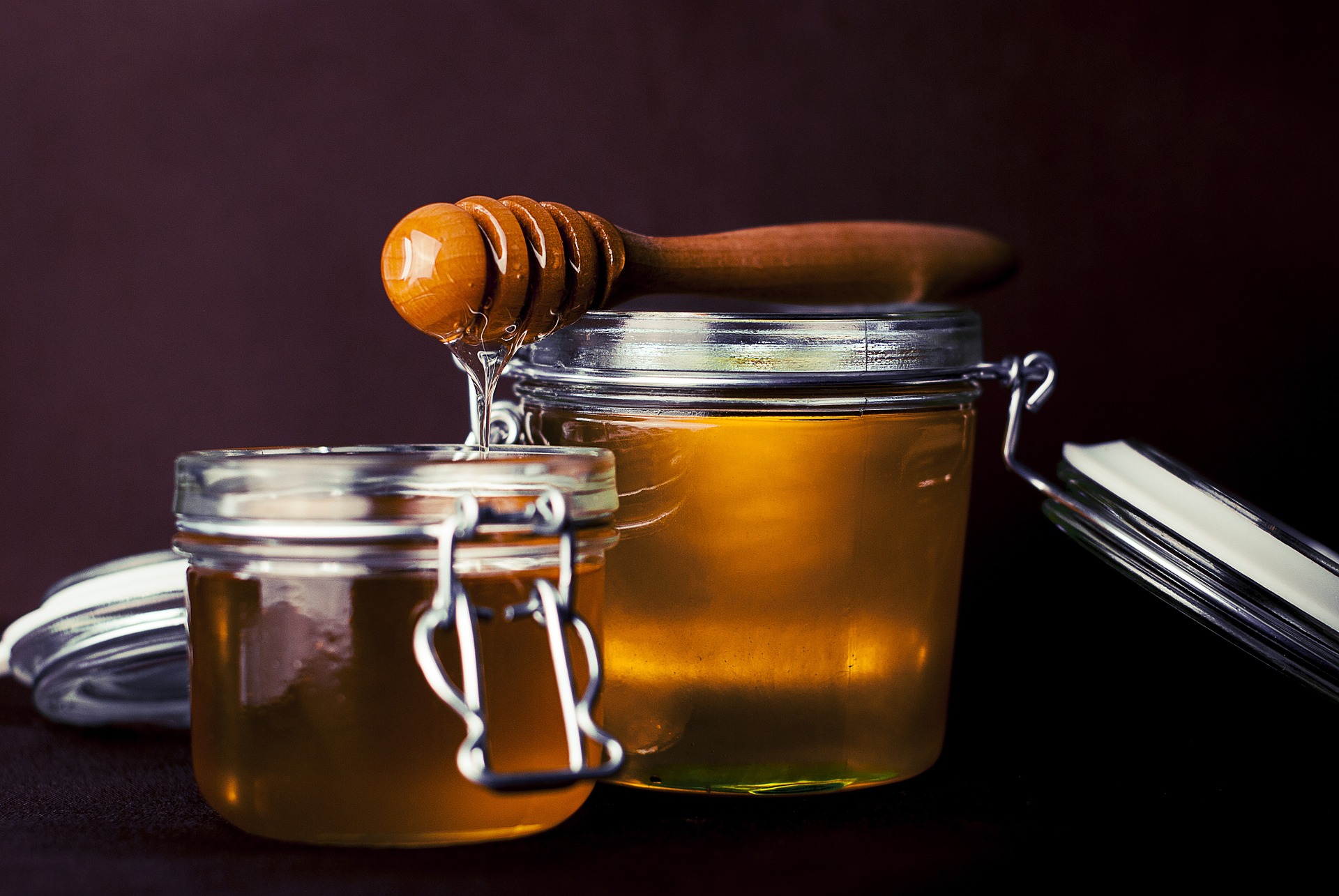
OPG Križić
Matije Antolca 1, Petrinja OPG
095 3924 280
Products: vegetables and bee products
OPG Marica Rožić
Vratečko 23, Petrinja OPG
091 6141 708
Products: livestock (cows, horses, chickens), milk production
OPG Naglić Kristina
Hrvatskog proljeća 30, Glina
099 2309 051
This email address is being protected from spambots. You need JavaScript enabled to view it.
Products: lambs, wine, brandy, liqueurs and Christmas trees
OPG Nikola Navijalić
Kralja Tomislava 1 branch 5, Moscenica
098 9729 671
Products: strawberries, vegetables, honey
OPG Miroslava Jović
Brezovo Polje 38, Glina
099 8299 458
Products: veal
OPG Josip Petrović
Brezovo Polje 95, Glina
099 2153 129
Products: pork, lamb, calves and young goats
OPG Dragan Jović
Brezovo Polje 95, Glina
099 2153 129
Production: calves
OPG Marijan Glušić
Antuna Mihanovića 1a, Petrinja OPG
095 9099 305/091 5251 497
This email address is being protected from spambots. You need JavaScript enabled to view it.
Products: apples and apple juice
OPG Josip Starešinović
Strašnik 109, Petrinja OPG
099 8759 237
This email address is being protected from spambots. You need JavaScript enabled to view it.
Products: milk, cheeses
OPG Milić Perica
Volinja 3, Dvor
099 5904996 / 098 779 214
This email address is being protected from spambots. You need JavaScript enabled to view it.
Products: free-range eggs, beef, composting, potatoes
OPG Vesna Antunović
Don Ante Lizatovica 5, Donji Kukuruzari
098 1902 554
This email address is being protected from spambots. You need JavaScript enabled to view it.
Products: honey, bee products
Family farm Vladimir Vujčić
Velika Gradusa 63, Sunja
091 7231 393
This email address is being protected from spambots. You need JavaScript enabled to view it.
Products: lambs
Family farm Vesna Pranjic - Marincic Winery
Frankopanska 18, Sisak
(new address: Jazvenik 8e, Sela)
0917315678/0915892346
This email address is being protected from spambots. You need JavaScript enabled to view it.
Products: wine, viticulture and winemaking
OPG Anita Zrnić
Bestrma 116, Sunja
098 1829 823
This email address is being protected from spambots. You need JavaScript enabled to view it.
Products: lamb, young goats
DVORSKA KOŠARICA – association of OPGs
091 9299 888
This email address is being protected from spambots. You need JavaScript enabled to view it.
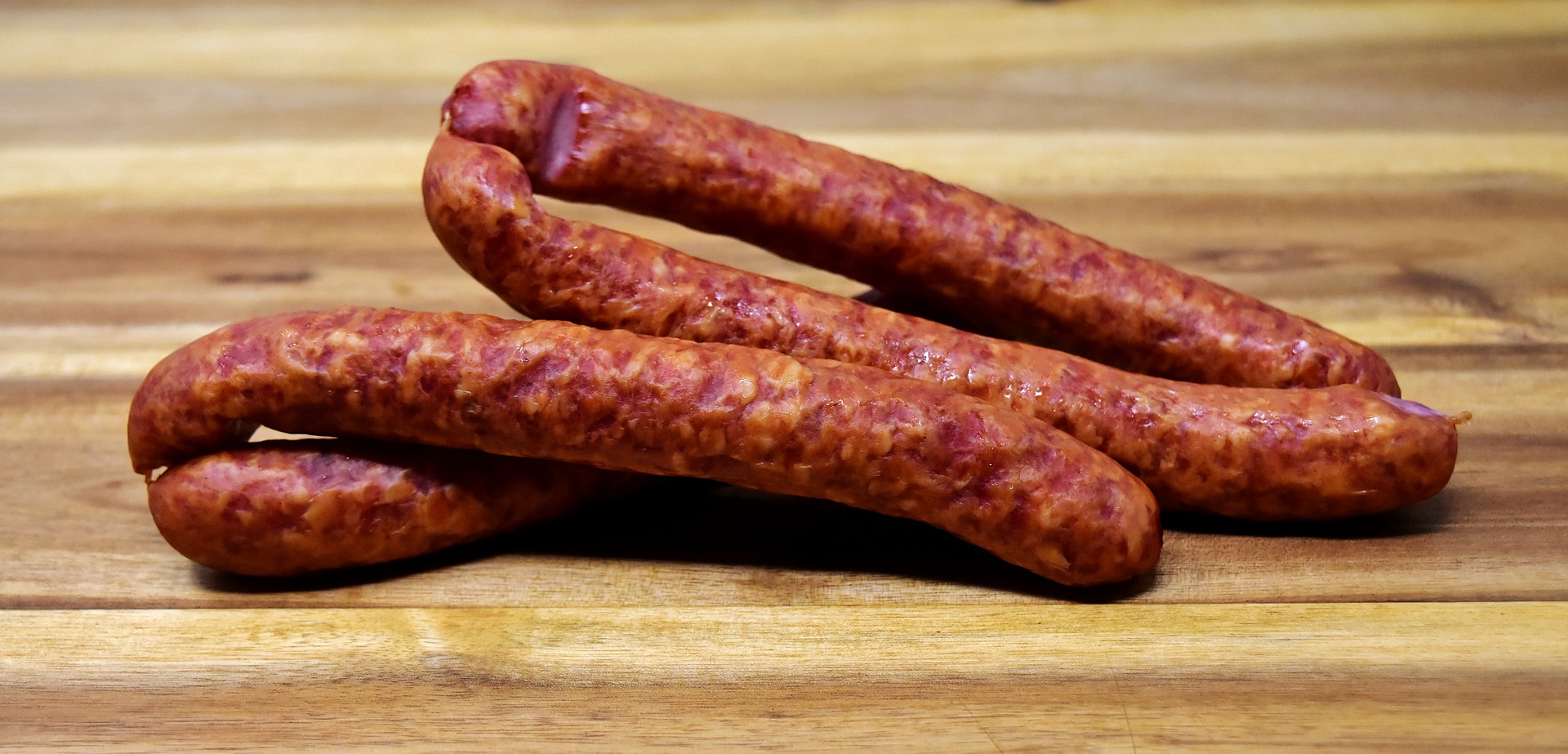
OPG Zoran Simić
Donji Javoranj 38 Dvor
Products: breeder of indigenous, protected breeds of pigs, sheep, goats and donkeys - live animals, meat and meat products - sausages, lard, čvarci (fried pork rind – pork scratchings), bacon
OPG Milko Nišević Kepčije
Products: smoked and fresh cheeses, organic breeding of calves, heifer cows, sheep and lambs
OPG Angela and Štefan Abramović
Products: pumpkin oil, flour, seeds, goat cheese, yogurt, fresh seasonal fruits and vegetables
OPG Milan Janković
Uncani 75, Dvor
0996585104
This email address is being protected from spambots. You need JavaScript enabled to view it.
Products: flaxseed (linseed) oil, pumpkin oil, pumpkin protein, flax seeds
OPG Kokin dom
Petrinja OPG
095 7972 064
Production: chickens
OPG Blaženko Anđić
Tomislava Ivkaneca 8a, Petrinja OPG
Products: honey and bee products, chokeberry / ariona berry products
OPG Jelić Ivka
Gajeva, Petrinja OPG
Available in online shop Zelena Kuca
Products: Collective of small producers of domestic and ecological products from Petrinja and its surroundings
Family farm Dijana Vukovic
Novi Farkasic 48
099 2862 510
Products: pumpkin oil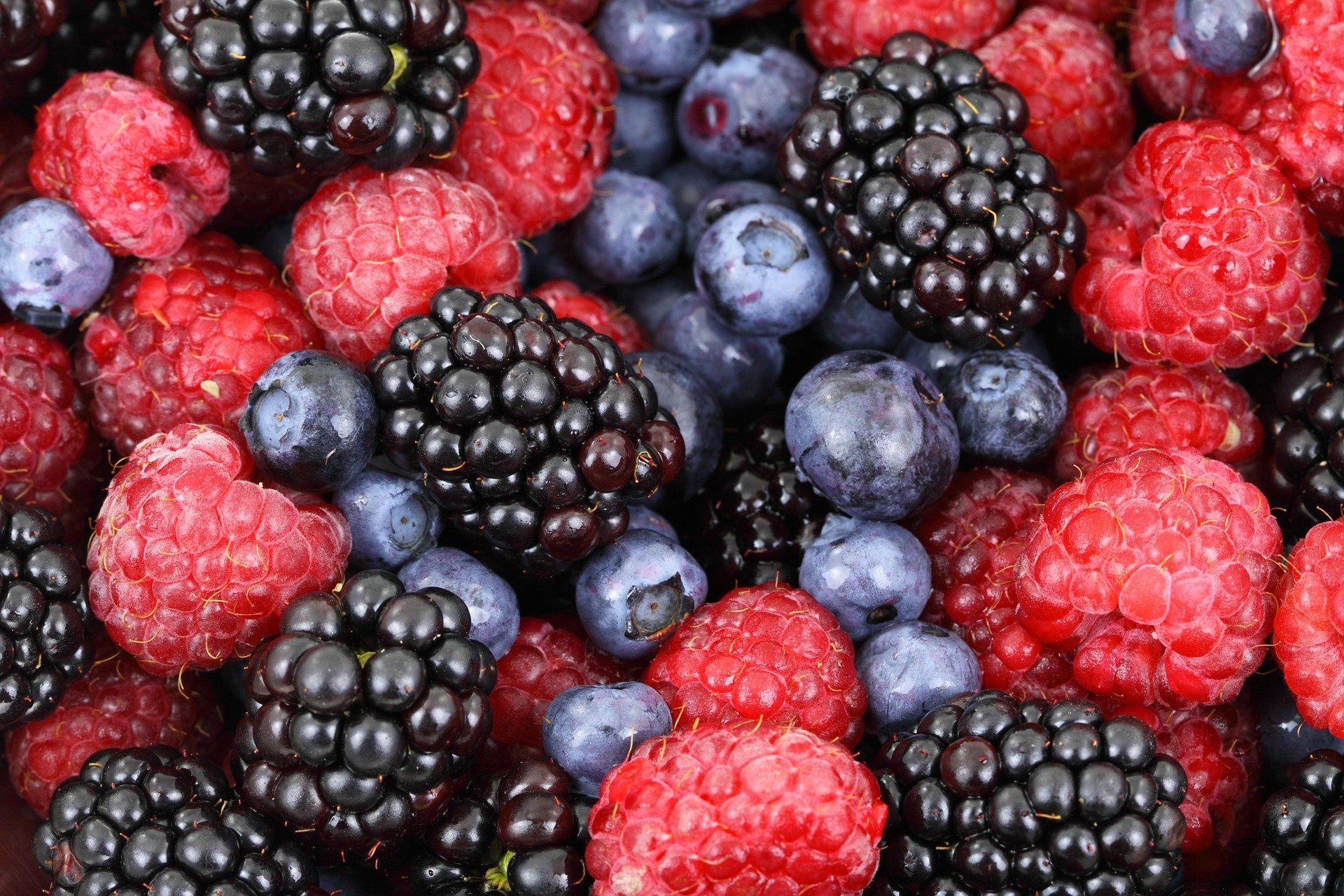
OPG "Majčina dušica" Nada Tanković
Petrinja OPG
091 7346 973
This email address is being protected from spambots. You need JavaScript enabled to view it.
Products: spices, herbs and medicinal herbs, berries (currants, raspberries, blackberries)
OPG Barišić Ivan
Mececani, Donji Kukuruzari
091 6460 664
This email address is being protected from spambots. You need JavaScript enabled to view it.
Products: vegetables, fruits, conserved fruits and vegetables, sheep and beekeeping
OPG Mara Dejanović
Deanovići 12, Petrinja OPG
098 9424 409
Products: dairy products, meat products, eggs, onions and other vegetables, lambs, pigs, calves
OPG Josip Jurković
Desni Degoj 20, Glina
098 9830 900
This email address is being protected from spambots. You need JavaScript enabled to view it.
Products: eggs, potatoes, sweet potatoes, onions
OPG Mira Cavic
Batinova Kosa 59, Topusko
099 7987 820
Products: free-range eggs, honey, potatoes, onions, lard, cleaned (plucked and butchered) chickens, geese and ducks, lambs
OPG Špiljar Nikola
Novi Farkasic 43, Petrinja OPG
098 9721 470
Products: cow-calf, sheep, pigs and horses
OPG Ivica Klobučar
Jurja Fratrovića 13, Glina
This email address is being protected from spambots. You need JavaScript enabled to view it.
Products: sheep breeding and free-range eggs
OPG Borojević
Trgovi, Dvor
091 9158 544
This email address is being protected from spambots. You need JavaScript enabled to view it.
Products: certified organic production and processing of hazelnuts (shelled hazelnuts, hazelnut oil, hazelnut flour, roasted hazelnuts) and buckwheat
OPG Severin Jurić
Lijevi Odvojak 33 A, Brest Pokupski
099 5053 160 / 098 551 324
This email address is being protected from spambots. You need JavaScript enabled to view it.
Product: hazelnuts
Cimerfraj add the following notes:
This list includes all small producers and family farms from the earthquake-affected settlements and the surrounding areas. At the time of compiling the list, we do not know whether these manufacturers are harmed or not, nor do we consider this important. We believe that synergy is necessary in order to initiate the balanced development of favorable existential opportunities for life in this area.
Due to some parts of the area currently being poorly covered by phone and internet signal, some of the manufacturers are easier to contact by text message, SMS or WhatsApp.
The list is still being updated. If you know of a domestic manufacturer from the affected area who is not currently included, please send all relevant details to This email address is being protected from spambots. You need JavaScript enabled to view it.
Croatia Agriculture Production Grows by 1 Billion Kuna in 2020
January 7, 2021 – Within the last month, TCN was pleased to report that Croatia agriculture and food exports had jumped considerably in 2020, while imports of the same had fallen. The success of Croatia agriculture in 2020 has been confirmed by a new report which shows that the industry has grown by almost one billion kuna in a year
The success of the Croatia agriculture sector in 2020 was detailed in a report by Smarter, a consulting company specialising in the agriculture and food industry. Vecernji List published their coverage of the report in recent days.
In the report, figures show that the value of Croatia agriculture production increased by 4.7% compared to the same period during the previous year. Croatia agriculture revenue, therefore, jumped from 17.9 billion HRK to 18.8 billion, an increase of almost one billion kuna. The 12 month period of Croatia agriculture used to compile the figures ends in November within each comparative year.
Figures show that Croatia agriculture experienced excellent results in crop production (wheat, soybeans, corn, etc). This contributing evidence goes some way to explain the good news TCN reported back in December that, according to the country's Central Bureau of Statistics, the total value of Croatia agriculture and food exports in the period from January to September 2020 amounted to 1.7 billion Euros, an increase of 5 percent from the same period in 2019. Within the same period, the value of agricultural and food imports into Croatia was 2.5 billion Euros, a decline of 7.3 percent from last year.
The result of the 2020 successes in Croatia agriculture has been a reduction in the foreign trade deficit by 26.6% in the agriculture and food sector. The improvement in 2020 is being partly attributed to grants and payments under the Rural Development Program (RDP), which have grown significantly creating a stimulus that in part affected the growth of the value of production and the amount that was produced. Increasing profits within the country's agriculture sector is being catalysed by adding value to the raw product which is grown here, via processing and other methods, which happens prior to export taking place.
Croatian AGRIVI Draws 30.2 Million Kuna for Further Global Expansion
As Poslovni Dnevnik writes on the 18th of November, 2020, AGRIVI, a Croatian agro-technological company that has developed a globally leading platform for agricultural production management, has been provided with additional financing, namely, HRK 30.2 million in Series A financing, whose holders are the South Central Ventures Investment Fund (SCV) and the European Investment Fund, and the Croatian Bank for Reconstruction and Development (HBOR).
In addition to the aforementioned, Fil Rouge Capital and AgriTech Hub also participated in this round of financing. The funds will help Croatia's AGRIVI expand its market reach to key more European markets and even to the United States.
The AGRIVI solution is one of the most complete platforms for managing agricultural production globally and helps farms and agri-food companies to achieve economically and environmentally sustainable agricultural production, which is of enormous importance in current times.
This new round of financing continues into an extremely successful period for AGRIVI, during which it recorded rapid growth in the number of clients, strengthened key managerial positions and gained greater market recognition and momentum, and all that at a time when the food and agricultural sectors are in increasing public focus. Key analytical reports position AGRIVI among key global leaders in farm management. Their user portfolio has grown significantly and today it includes very large brands such as Nestle, Driscoll’s, Kimberly-Clark and BNP Paribas. In addition, the consulting firm EY has recommended AGRIVI solutions as a quick-return project for all countries looking to increase the sustainability of their local production and reduce their impact on climate change.
"AGRIVI has made impressive progress since our first investment back in 2016. They've positioned themselves on the map of the world's leading agro-technological companies as one of the leading platforms for agricultural production management. I'm delighted that the European Investment Fund also recognised the opportunity and participated in our first direct joint venture. I'm convinced that the funds of this round of financing will enable AGRIVI to further accelerate its activities in several business areas and thus increase its contribution to the production of healthy food,'' stated Jure Mikuz, a partner in the South Central Ventures fund.
''The strong progress we've made and the outstanding clients we support have prepared us for the next phase of our growth. We're grateful to South Central Ventures, the European Investment Fund, the Croatian Bank for Reconstruction and Development, Fil Rouge Capital and AgriTech Hub for supporting our mission to digitise global agriculture. Recent events around the world have attracted additional attention to the food and agricultural sectors, so investor interest in AGRIVI is enormous, which is why we're considering expanding our circle and realising additional funding,'' added Matija Zulj, CEO and founder of AGRIVI.
For the latest travel info, bookmark our main travel info article, which is updated daily.
Read the Croatian Travel Update in your language - now available in 24 languages
Vesela Motika - Urban Indoor Eco Farm on Tresnjevka
November 14, 2020 - What happens when you give three agronomists and one Excel guy a space of 90 square meters? Believe it or not – a completely eco-based urban indoor farm, Vesela Motika.
Not so long ago, Sergej Lugovic and his colleague Bojan Krnjic started the journey of Urban Farm Solutions. At that time Sergej was a professor at Polytechnic of Zagreb and he often worked with his students on project-based things. They wanted a ready-made growing system to work together on automation, electronics, and software but realized there isn't any plug and play system for that to buy in Croatia.
As time passed, Sergej and Bojan worked on agriculture systems: on the one hand, they have the software and technological solutions. On the other hand, they have the primary cultivation on their farm. All of that is hidden at the indoor farm on Tresnjevka, which has a long tradition of independent food production in Zagreb; there was a dairy, soy factory, and now Vesela Motika (Happy Hoe).
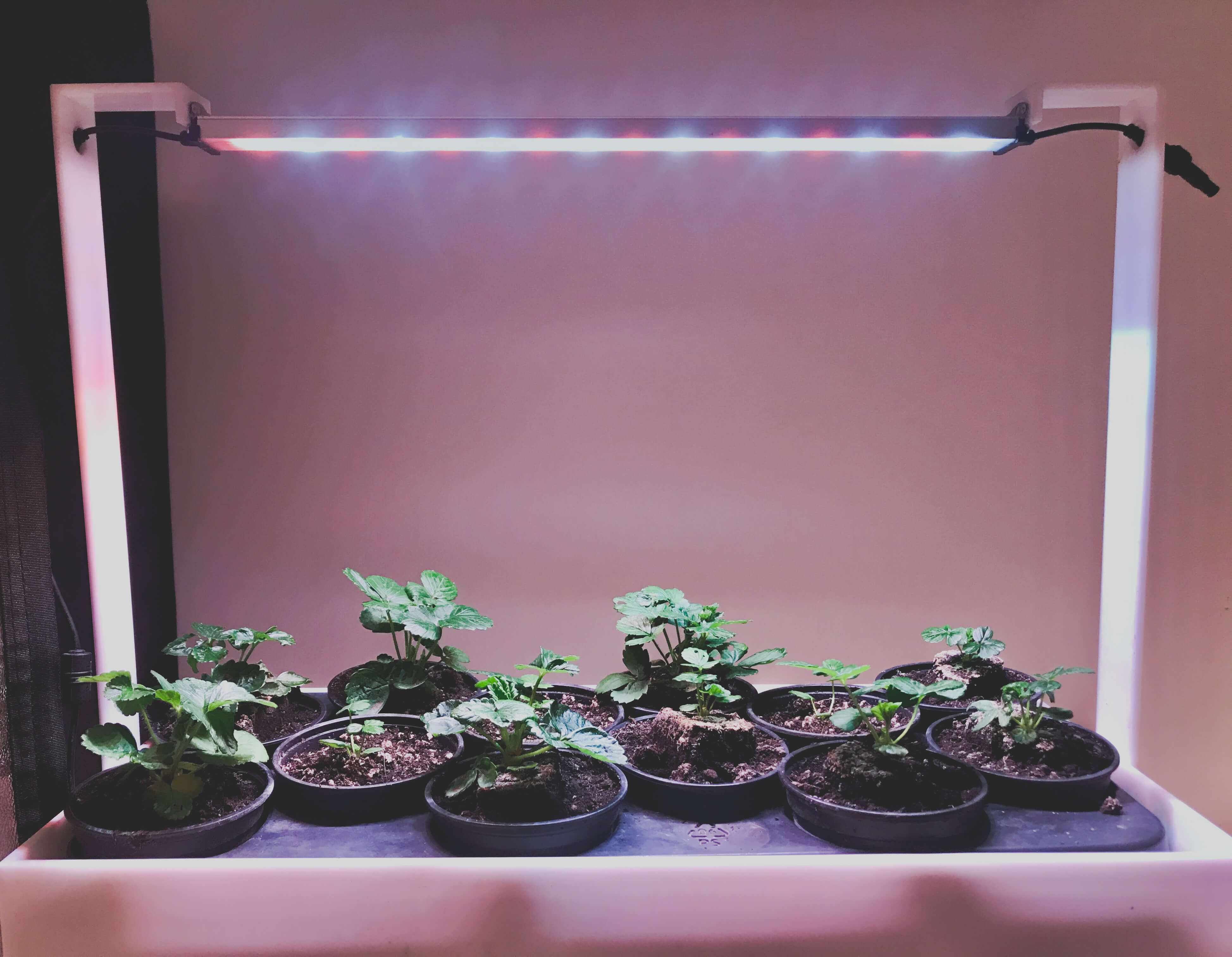
© Vesela Motika
Systems Kostya and Home Garden
They work with primary indoor cultivation of plant crops, equipment development, and complete solutions that are created according to clients' wishes. System Kostya is industrial-based for conventional agriculture, and it is a vertical system, while Home Garden is more if you want a have plants in your house or office. Except that it has a therapeutic feature - Sergej can calculate what you eat, how much you eat, how much you spend on food, so that you can benefit from that aspect, as well.
“Our thing is hyper-local; we don't need equipment from I don't know where because we have the competencies to make them in Croatia. If we could build have the business towers around the world, one of the best guns in the world, the fastest electric car, the best athletes, where are we stuck in other things?”
If you want to grow 2000 seedlings (whose price at the Tresnjevka market is 4 HRK), you need a space of 1.2 meters by 0,6 meters and six floors with shelves for seedlings. This is the Kostya system used in professional agriculture.
Eco seeds are procured from the company Lokvine (near Zagreb). Besides, their entire production is eco: from top nutrients for plants, protection, and substrates to top lighting.
© Vesela Motika
The biggest problem in agriculture - financial and information literacy
Talking to farmers, Sergei realized that they do not know how to calculate the price difference because they do not record costs, do not manage stocks, and do not count their time.
“Because of all this, overkill happens, burning outs, product quality drops, or they start behaving opportunistically and then reselling. Then you are the same thing you are fighting against,” says Sergej, who comes from the field of business analytics. He used to run the Big Data Lab for five years, was among the first 4 employees at SAP Croatia, and had an Internet video company in 2005 (yes, before YouTube).
“If you buy 10kg of tomatoes and sell them, that is around 70 HRK. If you make salsa from those 10 kgs, you might get 120 HRK. But if you bring a person to the farm, to pick a tomato himself, teach him how to make that salsa and take it home, give him accommodation on the farm, you get, for the same 10 kg of tomatoes, 350 HRK (including an overnight stay, meal, etc.),” says Sergej.
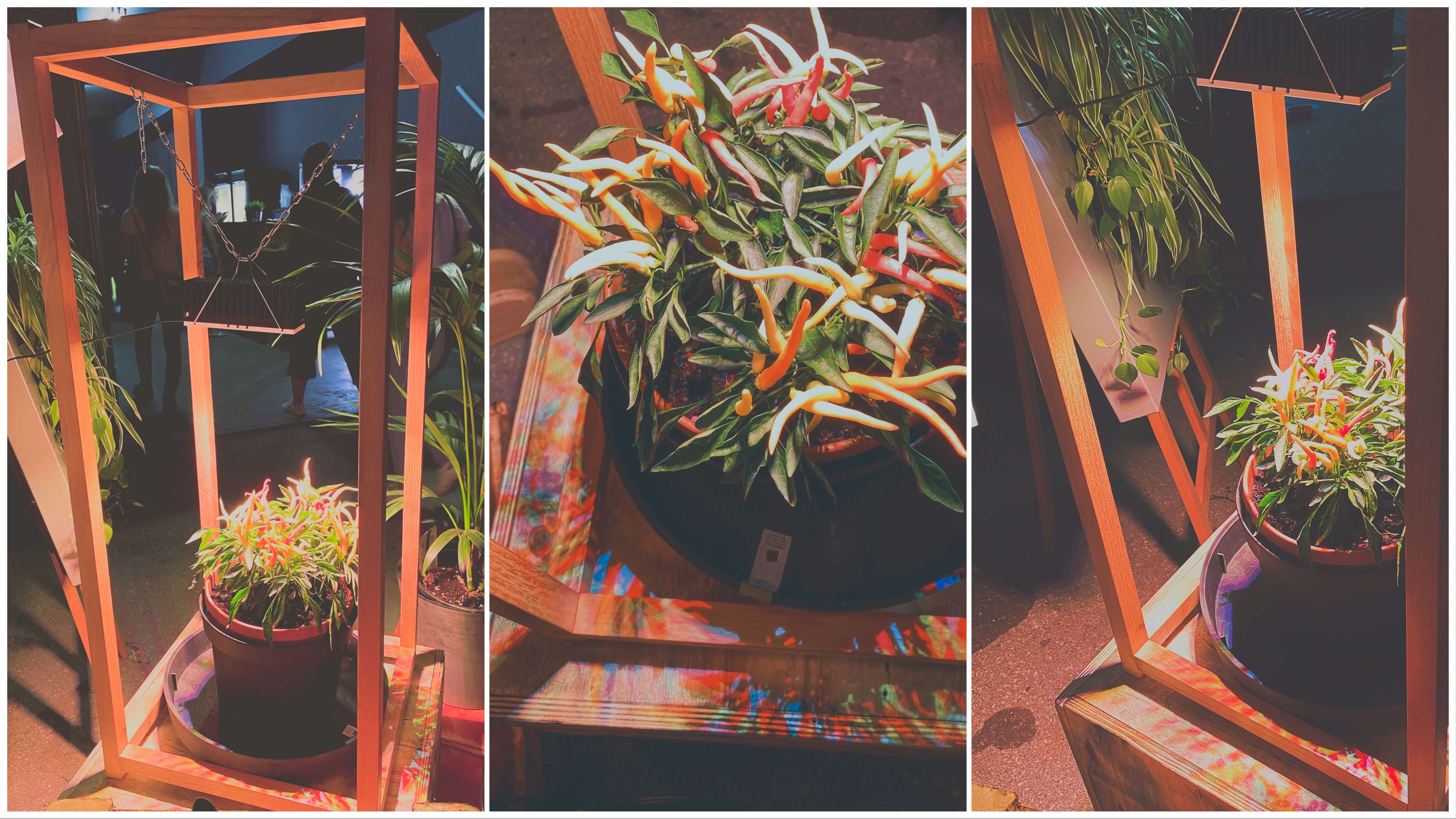
© Vesela Motika
YouTube for food
As an active member of the underground electronic music scene and being a DJ for 20 years, Sergej has run nightclubs and organized over 1,000 events. He realized that this underground independent scene culture could be applied to independent food culture. That’s why he prefers to call it independent rather than craft.
Sergej’s is finishing his Ph.D. in information behavior in which he quantified patterns of behavior of people searching for music in the domain of machine learning. The first paper was published in 2005 about what other industries can learn from the music industry. “Because we went from records to making all the music free. Then I asked a hypothetical question, what would YouTube for food look like?”
Just as we have free music on YouTube, so we could have free food. It seemed impossible at first, but after research, he realized that 50% of food is thrown away. “If they had a good information system, everyone would have free food,” Sergej concludes.
He made a comparison and said that Google is worth a trillion, now; let's imagine someone investing a trillion in an information system to give food to those who don’t have from those who have a surplus. But of course, he is aware that legislation would try to prevent this. “We worked on an information system for the Red Cross store in Zagreb, which distributes food free of charge, and they were acquainted with the strict legal regulations.”
Sergej believes that these ways can always be regulated - if someone wants to give his surplus, he sees no obstacle for others to accept it.
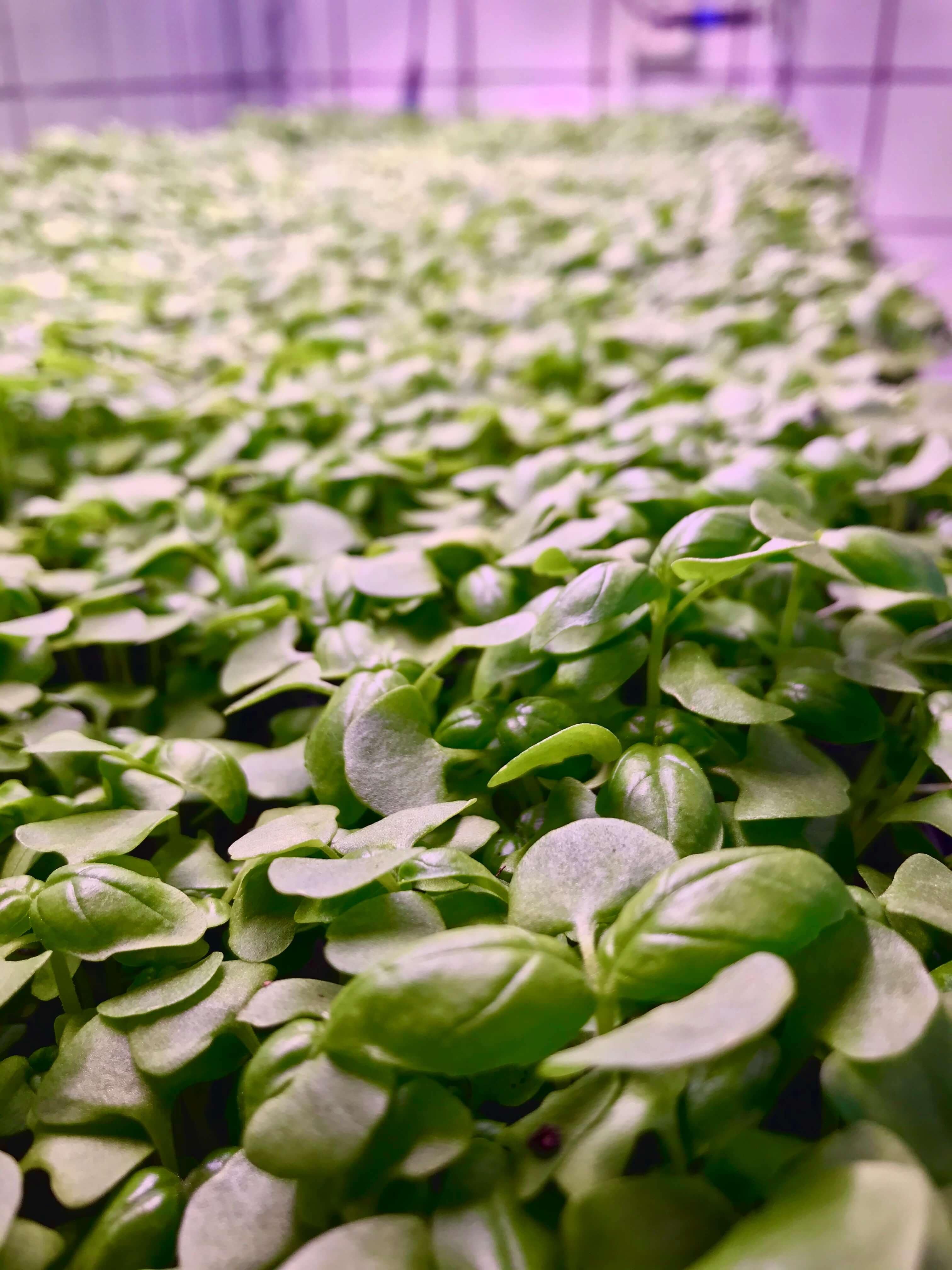
© Vesela Motika
Contra concept - big no to “from the field to the table”
If there are one table and four suppliers trying to be as close to that table as possible, when a customer decides what to buy, he will only take 1 and 3 stays where? But if we look from the “from table to farm” aspect, Sergej, as an information scientist, follows the information: your refrigerator and your desk know how much food you need. If that data could be captured, we can have a lot less food waste, a much clearer information picture of what’s going on. Another premise is that food must be produced as close as possible to where it is consumed because too much money is spent on distribution, cold chains, etc. The impact is not only about eating quality, not polluting the Earth with transport, but also having a therapeutic effect.
His colleague Bojan grew a lot of things near Popovaca. They concluded that the energy they spend on artificial lighting in Zagreb on the indoor farm is equal to when Bojan goes to Popovaca 7 and a half times a month. “And we can grow one ton in Zagreb, which is 12 tons a year,” says Sergej.
Cognition is a process, don't hurry it
Sergej doesn't worry if something doesn't happen tomorrow; he realizes that everything will come on its own. He teaches his students that if they plant a salad, they will eat it in 30 days. If they plant an olive, they will eat it in 7 years, but they will eat it for 700 years. “I wrote something in my MBA in 1999 that I am doing today. The conclusion was whether the refrigerator would become a competitor to Tesco because the refrigerator has information on how much you eat,” says Sergej.
They are working on some projects that are still in the early stage of development but are already talking to the people working on the buildings' projects. If a building, a socio-technological system, is built together with a biosystem, there can be a farm in the basement. The lamps' heat goes up, heats the building, and the people who live in that building have fresh vegetables on hand. Besides, each building would have one agronomist.
Furthermore, they created an app that has four functions: it is a multivendor (combines transit warehouse for multiple suppliers, logistics, route planning), transaction system (immediately issues invoices, delivery notes - when you click “buy,” 12 documents are created automatically), finance management and has a farm and inventory self-management module. They have developed very demanding software that requires a larger volume of sales to make it cost-effective. “Friend, who runs a farm and make one of the best cheese in Croatia, told me that I have a Jaguar in the garage; there will come a time when I will park it in front.”
As much as the corona crisis gave them time to build an even stronger story, it still brought them to their knees in some things. “And that's okay. Because looking at physics, everything that sinks has a repressive force, as well,” concludes Sergej.
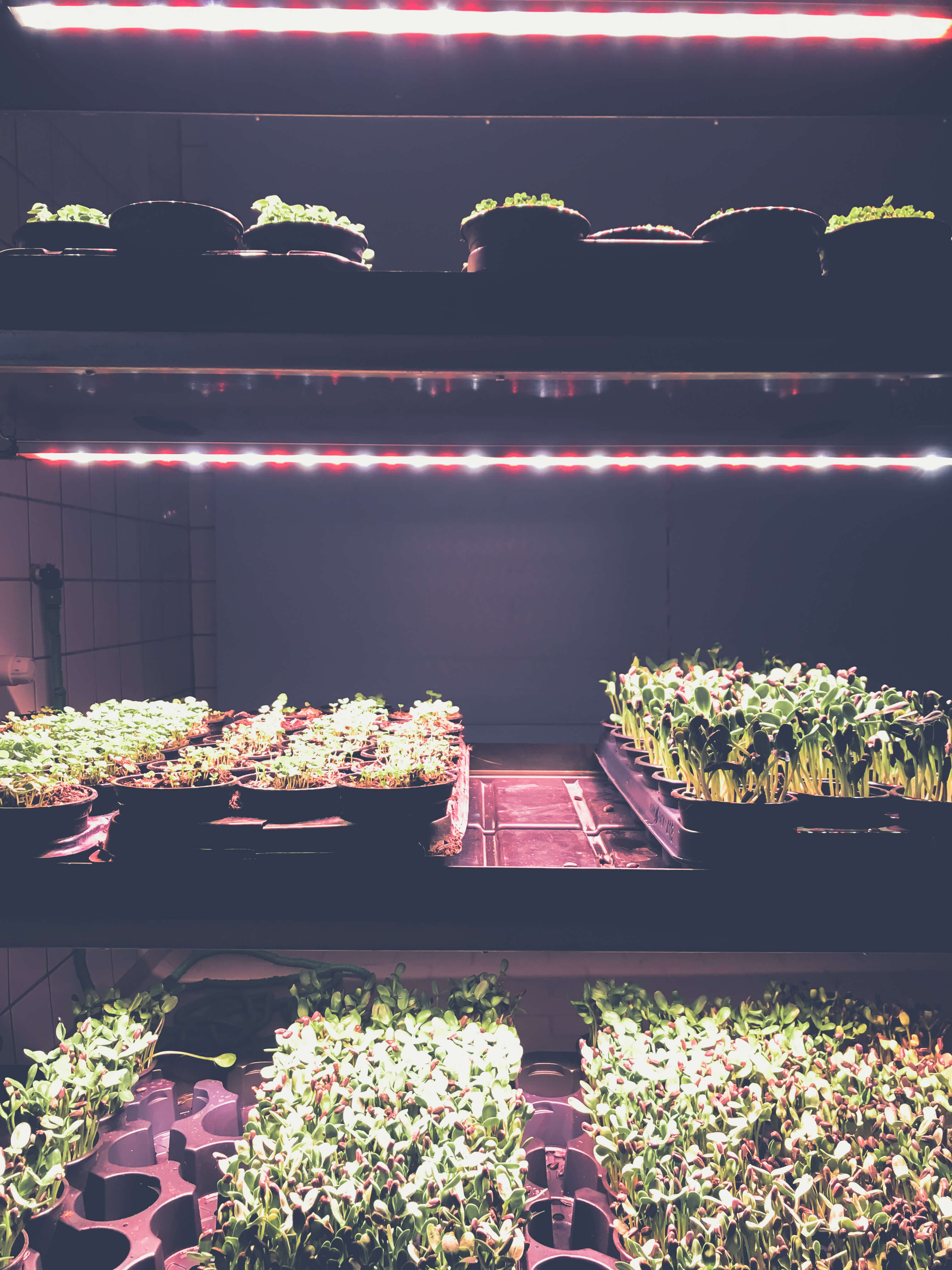
© Vesela Motika
For the latest travel info, bookmark our main travel info article, which is updated daily.
Read the Croatian Travel Update in your language - now available in 24 languages.
Nearly 930,500 kg of Food Donated in the First Six Months
ZAGREB, September 13, 2020 - In the first six months of 2020, 930,424 kg of food was donated, up 6.3% on the year, the Agriculture Ministry said this week, underlining the increase "despite the aggravating circumstances" in the wake of coronavirus measures.
The ministry said preventing the creation of food waste was one of its major strategies and that the importance of sustainable food production and consumption was becoming increasingly important during the COVID-19 pandemic.
The electronic food donation system has helped small dairy farms affected by the corona crisis, with 176 tonnes of their product purchased and freely distributed to 78 food donation mediators, eventually finding their way to the needy, the ministry said.
In recent years, the ministry said, it has been intensively working on advancing the food donation system and increasing the amount of donated food.
It is essential to ensure all the prerequisites so that safe and quality food which could end up as waste finds its way to the needy, the ministry said.
The e-donation system was launched in 2018 to expedite the distribution of surplus food and to facilitate communication between donors and mediators as well as cooperation with all stakeholders in the food donation chain, the ministry said.
It called on everyone in the food business and humanitarian organisations which mediate in food donation to take part in e-donation and contribute to socially and environmentally responsible business of their firms.
For the latest travel info, bookmark our main travel info article, which is updated daily.
Read the Croatian Travel Update in your language - now available in 24 languages
Chamber of Agriculture Urges Consumers to Buy Domestic Vegetables
ZAGREB, July 4, 2020 - The Croatian Chamber of Agriculture (HPK) on Saturday called on consumers, buyers, and retailers to help domestic farmers by buying their vegetables because the corona crisis has put them in unenviable market position and this year's yield risks going to waste.
Domestic farmers are desperate as they have no one to sell their product to and the yield risks staying in the fields instead of in stores and farmers' markets, Vjekoslav Budnec, chair of the HPK vegetable farming committee, told a press conference
"Due to the fear of a vegetable shortage in the wake of the corona crisis, vegetable farming increased this spring, which was the goal, to raise self-sufficiency," HPK leaders said.
This year's yield is good but farmers have no one to sell it to as buyers knock the purchase price below the producer price, they added.
"Unfortunately, tourism and tourist consumption as one of the essential sales channels have been absent, while the import and placement of cheap vegetables and market surpluses from the EU and regional markets through retail chains have continued," HPK said.
HPK president Mladen Jakopovic called on consumers to buy domestic vegetables as a way to protect domestic production as well as on retail chains to put more domestic vegetables on their shelves.
HPK expects the government to define a clear vegetable farming strategy.
Its leaders said Croatia imported 56,072 tonnes of vegetables worth €46.37 million in the first three months of this year.
Jakopovic said this was up 11.4% in quantity year on year but that the value was the same, "which proves that even during the corona crisis, world market surpluses were arriving in Croatia at lower prices."
He added that the import of every vegetable was increasing.
According to estimates, there are some 39,000 vegetable farms in Croatia. Their average size is 0.32 hectares, resulting in a low yield per hectare and low competitiveness.
Coronavirus: Should Croatia Engage Unemployed in Agricultural Work?
As Poslovni Dnevnik/Denis Matijevic writes on the 2nd of April, 2020, countries like Austria, Germany and France have already launched websites where unemployed people who are not affected by the coronavirus pandemic can apply to work in the agriculture sector.
A large number of European Union countries facing the spread of the coronavirus pandemic are calling for agricultural ''patriotism'' and are warning that agriculture and food production should not stop at this point. The biggest challenge for them is the lack of manpower, which will come to the forefront in an even stronger way once the harvest season begins.
Food supplies around the world are facing increasing obstacles, including export restrictions, and large producers naturally want to secure their citizens' supply. Numerous countries have reiterated the need for self-sufficiency in food production, and there is a concern that some governments may restrict the flow of basic food products to secure domestic supply in the face of supply chain disruptions.
One of the problems that is particularly striking is that in most EU countries, OPG owners are senior citizens, who are particularly affected by the coronavirus pandemic. According to some figures, as many as 59.7 per cent of OPG owners in the EU are over 65 years of age.
For this reason, numerous governments are trying to find ways to engage those who can work in agriculture, with a focus on those who have already lost their jobs (such as hospitality workers), to help with agriculture work in combination with volunteering and securing an income.
Some countries believe that one of the financial measures could be one that would ensure that part of the financial support for the unemployed could be diverted to farmers, so that volunteers could earn a decent income.
They're calling on hospitality workers who have lost their jobs, such as waiters and cooks.
Austria currently lacks 5,000 workers for their harvest, and as spring approaches, more and more people are going to be needed. Their meat processing industry isn't in a better position either, as they lack as many as 9000 workers. For this reason, the Austrian Government is urging citizens who are currently free and have no work obligations, to apply and support the agriculture sector. To facilitate this, the government has launched a website through which interested parties can apply.
The appeal was addressed primarily to hospitality and gastronomy employees who are not currently employed, but is also extends to students.
Over recent years, many workers from other EU countries or third countries have been arriving in Germany to undertake seasonal work in agriculture, such as picking asparagus and strawberries, and the coronavirus crisis has caused the countries many difficulties in terms of their labour supply.
About 286,000 seasonal workers work in German fields each year, with most of them coming from other countries. Currently, the most affected people in this field in Germany are fruit and vegetable growers who totally rely on foreign seasonal workers.
The French Government has also called on employees who are currently laid off or aren't working due to the coronavirus pandemic, to make themselves available to help farmers with seasonal work. Leaders of the FNSEA, France's main agricultural union, warn that they currently lack around 200,000 people in agriculture.
The FNSEA has also launched a website where residents of France can register to make themselves available to farmers who need workers.
To encourage people to register, those who volunteer will be able to combine their partial unemployment benefits with their wages earned by engaging in seasonal work in agriculture, which are roughly equivalent to the minimum wage.
The possible decline in production across Europe, the difficulty in supplying and the closure of some countries for export could leave the global market without some types of products and food. Croatia, as a major food importer, could be primarily affected by the supply of pork, milk, vegetables and fruit.
Therefore, it is now an opportunity to seriously start thinking about turning things around rather dramatically in terms of Croatian agriculture. At this point, it is necessary to take immediate steps to adopt crisis and rapid measures that will ensure a secure supply and remove obstacles to food production.
Once the coronavirus crisis is over, it will be necessary to make a shift and change the business model for agriculture, raising production and self-sufficiency, and being aware that agriculture and food production is one of the most important strategic branches of the entire economy.
Make sure to follow our dedicated section for rolling information and updates on coronavirus in Croatia.
Value of Croatian Agricultural Production Drops Significantly
As Novac/Zlatko Simic writes on the 3rd of September, 2019, the value of Croatian agricultural production has unfortunately fallen from 33 billion kuna to a mere 16 billion kuna, the number of pigs has dropped dramatically from 2 million to about 800,000, and Croatian milk production has fallen from 900 million to only 400 million litres.
Considering that Croatia has increased its meadow and pasture surface areas from 300,000 hectares to as much as 600,000 hectares, and that only twelve percent of Croatian farmers pay their taxes while remaining below the taxman's shears, it is still evident that agricultural policies in this country, at least so far, have not managed to rectify the many challenges facing producers before and after Croatia's accession to the European Union.
Due to all of the negative trends in agriculture, Croatia needs a much clearer agricultural strategy that will be based on the real and current situation in production, productivity, and aid distribution. However, the direction in which the World Bank started to develop a strategy for that is not good for the Croatian Ministry of Agriculture, and there is a lot of ambiguity to be found in it. In addition, it also contains information that does not maintain or stay quite true to the real and rather unfortunate current situation in Croatian agriculture.
This is the main conclusion from an expert discussion on a World Bank document entitled Sector Status and Analysis of Public Expenditure on Agriculture and Rural Development, recently published on the Ministry of Agriculture's website, which should ideally have underpinned the future development of the Croatian agriculture strategy.
The gathering on all things agricultural brought together representatives of agricultural associations, producers, institutions and large agricultural companies, who emphasised the fact that the World Bank, which hired its own experts as well as Croatian ones, did not adequately address the problems of the Croatian agricultural industry, the reasons for the decline in production, and the inefficiency of large funds that failed in investment in agriculture.
The group also argued that as yet, no concrete results have actually been produced.
Make sure to follow our dedicated business page for much more.


